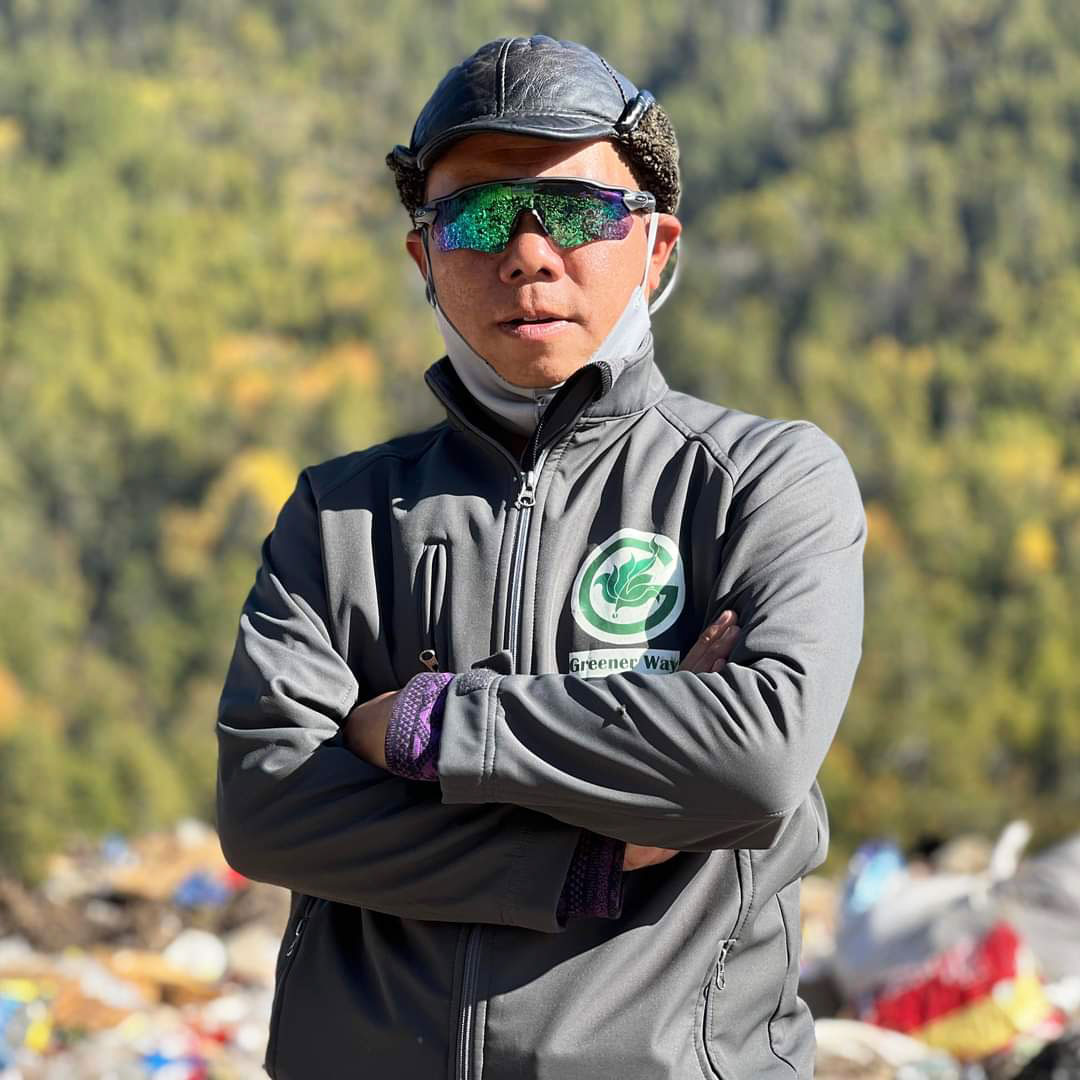The founder and chief executive officer of Greener Way, Karma Yonten, popularly known as the Trash Man talks to Kuensel reporter YK Poudel on the journey of Greener Way, the country’s first waste management firm, waste issues in the country, and Bhutan Waste Bank project
Greener Way Private Limited, established in 2010 has been in the trash business for 14-years now. How has this journey been?
Greener Way was established on March 10, 2010 as a simple scrap waste dealer. Later in 2012, with support from Thimphu Thromde, it became the municipal waste collecting company. With the waste flagship programme initiated in 2018, Greener Way initiated a material recovery facility in 2018, following which, we started producing eco-poles in 2019 and delineators from 2023. After renewing the contract with the government last year, the Greener Way started the Bhutan Waste Bank, which was launched on April 18 with USD 1.5 million assistance from the World Bank.
The implementation of Bhutan Waste Bank will be overseen by the South Asia Cooperative Environment Programme through the Plastic Free Rivers and Seas for South Asia grant implemented by South Asia Co-operative Environment Programme and the United Nations Office for Project Services. Today, the company, with 91 employees, provides waste collection services to 50 percent of the city and has partnered with waste managers in seven dzongkhags.
What is Bhutan Waste Bank? What are the key initiatives under this project and how will it contribute to a sustainable and circular economy?
Over the last 25 years, people have heard this phrase ‘there is cash in the trash’. In spite of the initiatives, not much impactful result and change were visible. In the 12th Plan, the government made a huge investment through the waste management flagship programme and several initiatives were launched through this programme.
The Bhutan Waste Bank is an initiative to address Thimphu’s waste challenges by incentivising waste collectors. The concept is simple – anyone can drop their solid waste at the nearest drop-off centre and get credited for the trash or open a savings account at the bank. The bank offers Nu 100 for a kilogramme (Kg) of aluminum, Nu 25 for a Kg of pet bottles, Nu 20 for a Kg of plastic waste, Nu 10 for a Kg of rubber waste, Nu 7 for a Kg of paper and cardboard, Nu 3 for a piece of beer bottle and Nu 1 for other bottle type.
With this concept, waste can be understood as a recoverable item – bringing a behaviourial change among the people. Further, the Bhutan Waste Bank will promote sustainable waste practices to reduce plastic pollution in water bodies and also create job opportunities for women and youth.
The government has discontinued the waste flagship programme initiated in the 12th Plan. The government now plans to support and involve the private sector in the circular economy. What are your thoughts about this concept?
While the government has not included a separate project in this Plan, the concept comes under environment governance. All agencies will initiate programmes and work collaboratively. Under the circular economy concept, recoverable items would be extracted from the environment and reused or recycled; increasing the life span of the commodity.
For instance, Greener Way, one of the waste managing companies, in its first phase initiated door-to-door waste collection projects. It worked on establishing waste drop-off centres in the second phase, and now as a third phase, it is working on Bhutan Waste Bank, with 10 waste banks in total across Thimphu Thromde. Similar initiatives in parts are done by other agencies such as Thimphu Thromde, Department of Environment and Climate Change (DECC) and other agencies. Everyone is working on behaviourial change among the people and value addition to the trash.
Moving forward, how does the Greener Way plan to initiate projects and strengthen waste management programme in the country?
Overall, the government and related agencies have been supporting waste management initiatives with DECC as the nodal agency. The Greener Way has 20 managers and scale operators in 10 waste banks who will assist individuals bringing waste at the drop-off centres. For now, there are about seven recyclable items identified, with plans to integrate more options over time. The company already has partnerships with scrap managers across seven dzongkhags. The initiative will be slowly taken to other major Thromdes like Phuentsholing, Samdrupjongkhar and others.
And through this project, the Greener Way has established waste banks throughout Thimphu, up-scaled eco-pole recycling plant, and a PET washing and shredding plant at Memeylakha.


